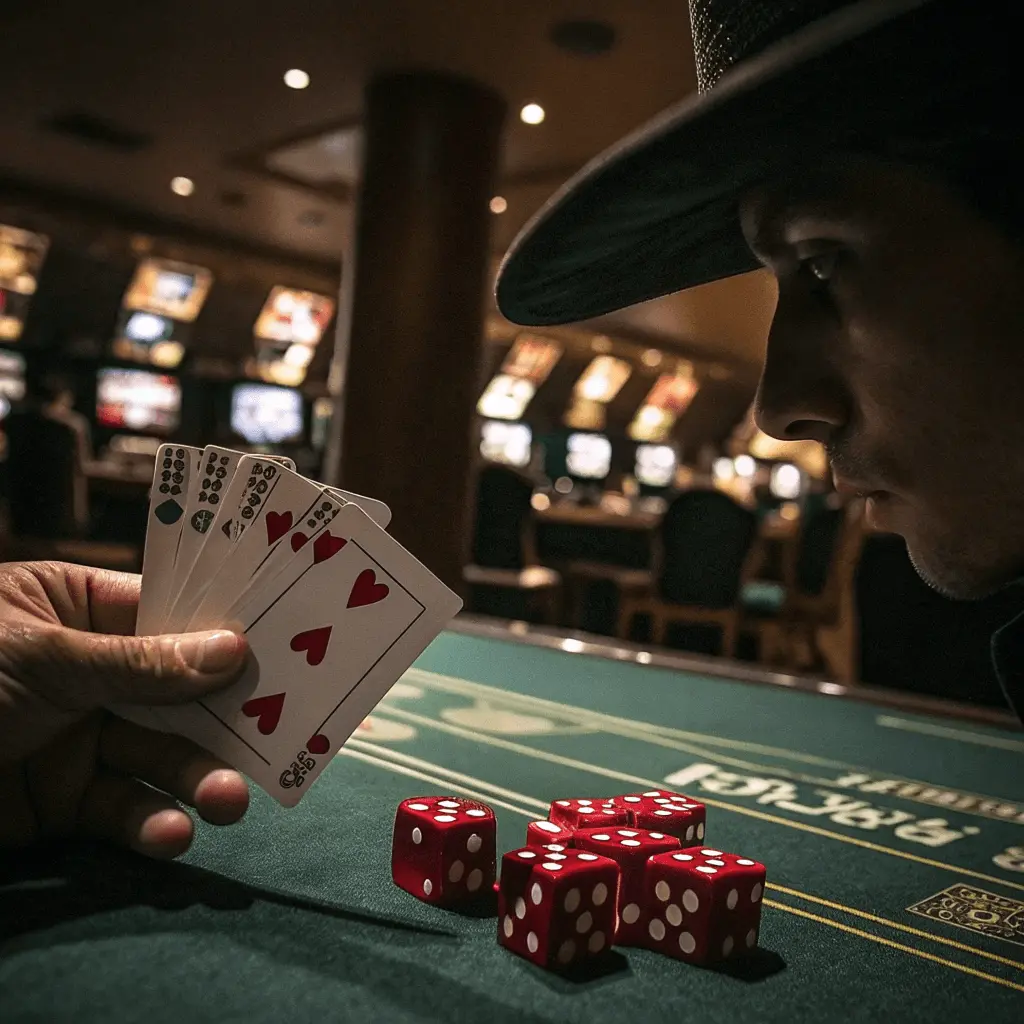
In the world of gambling in Poland, success is often attributed to a solid understanding of mathematics, strategy, and discipline. Yet, many players—from experienced Polish poker professionals to casual slot enthusiasts—will tell you that sometimes, decisions aren’t guided purely by logic, but by a gut feeling.
The truth lies in the complex workings of the human brain, which continuously processes information on a subconscious level, resulting in intuitive flashes of insight. This immediate sense of knowing can be a powerful motivator in any game, a rush that resonates deeply with those in Poland who are drawn to the excitement and potential rewards of offers like Vulkan Bet 50 free spins fire joker.
The Brain’s Subconscious Calculator: Heuristics and Pattern Recognition
A gambler’s intuition, in a scientific sense, can often be a form of a heuristic at work. For instance, a player might have a “gut feeling” about a table because their brain is subconsciously picking up on a pattern in the way the cards are being dealt or in a dealer’s hand gestures. They may not be able to articulate what the pattern is, but their brain has recognized it and provided a powerful, immediate signal. This is a form of pattern recognition, a core function of the human brain, where a vast amount of information is processed in the background, influencing our conscious thought.
The more experienced a gambler is, the more likely they are to have a well-developed network of these subconscious patterns. An expert poker player, for example, has seen tens of thousands of hands. Their brain has cataloged countless scenarios, and while they may not consciously remember every one, their subconscious mind can quickly recognize a similar situation and provide a strong “gut feeling” about the right course of action.
The Emotional and Biological Link: When Our Bodies Know?
Intuition is not just a cognitive process; it has a powerful emotional and biological component. Neuroscientist Antonio Damasio’s research on “somatic markers” offers a fascinating glimpse into this connection. He proposed that our brains link certain outcomes with specific physical and emotional sensations. For example, a bad past decision might be tagged with a negative feeling of dread, while a good decision might be tagged with a positive sense of excitement. When we encounter a similar situation, our brain triggers these “somatic markers” to create a “gut feeling.” This is the feeling that our bodies know something before our conscious mind does.
Here are some of the physiological signs that can contribute to a “gut feeling”:
- Increased Heart Rate: A sudden acceleration of your heart rate can be a sign of excitement or fear, which can be interpreted as a cue to proceed or to stop.
- Muscle Tension: A feeling of tension in your shoulders or a tightening in your stomach can be a subconscious signal that your body is preparing for a negative outcome.
- Goosebumps or a Shiver: These reactions can be a sign of a strong emotional response to a perceived risk or reward, creating a powerful feeling of intuition.
Intuition vs. Information: A Guide to Responsible Play
While intuition can be a powerful tool, it is crucial to distinguish between genuine, experience-based gut feelings and irrational impulses driven by cognitive biases. Many people mistake the thrill of a gamble for intuition, when in reality, they are falling prey to well-known psychological traps. The gambler’s fallacy, for instance, is the mistaken belief that past outcomes influence future ones. Believing a coin is “due” to land on tails after a string of heads is an irrational impulse, not a genuine intuition. Similarly, the illusion of control—the belief that you have some influence over a random event—is a common bias that is often mistaken for a gut feeling. A truly intuitive decision is rooted in subconscious information processing, not wishful thinking or a desire to win back losses.
| Factor | True Intuition | Cognitive Bias (False Intuition) |
| Origin | Subconscious recognition of complex patterns and data from past experiences. | An irrational mental shortcut or wishful thinking based on a flawed belief. |
| Feeling | A calm, certain feeling of knowing. | A high-pressure, emotional urge to act. |
| Behavior | Complements a disciplined strategy and logical analysis. | Leads to impulsive or irrational decisions that ignore the odds. |
| Result | Can lead to a better-informed decision. | Often leads to poor decisions and a loss of money. |
The science behind gambler’s intuition shows that it is not a mystical power, but rather a complex interaction between the brain’s subconscious processing, emotional signals, and accumulated experience. In Poland, where many players rely on both skill and instinct, this intuition can offer a subtle yet valuable edge. However, it should never replace a disciplined strategy. The real challenge for Polish gamblers is to distinguish a genuine gut feeling from a risky impulse, always grounding their decisions in solid knowledge and careful analysis.



